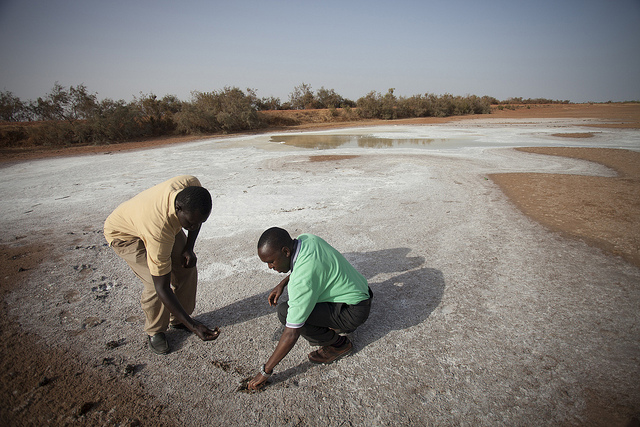Dec. 5 marks World Soil Day, which focuses this year on raising awareness of the importance of soil in sustainable food production. Through its cutting-edge research, IFPRI has been informing policies and strategies that protect the soil for the benefit of the billions of people who depend on it.
In close collaboration with the German Center for Development Research (ZEF) and 13 other institutions around the world, IFPRI has not only looked at the severity of land degradation at the global and regional levels, but has analyzed the drivers and cost of land degradation within local contexts in 12 countries. This research, presented recently in the book Economics of Land Degradation and Improvement—A Global Assessment for Sustainable Development, made clear that land degradation poses a serious threat to food security, potentially reducing food production by up to 12 percent during the next 25 years. The joint study also demonstrated that a $1 investment in the restoration of degraded land returns a value of $5, particularly if investments are made in agricultural research and development and building local agricultural capacity.
This compelling evidence contributed to the final resolution of the United Nations Conference on Sustainable Development (Rio+20) in Brazil in 2012 that called for urgent actions to reverse land degradation. IFPRI’s research on land degradation was subsequently used to develop Sustainable Development Goal 15 on halting and reversing land degradation. In addition, it informed strategies and publications of various international organizations, including the United Nations Convention to Combat Desertification’s (UNCCD), FAO, and the European Union.
Recognizing the critical role of land in achieving the Sustainable Development Goals, global interest and efforts to efficiently manage soil have intensified. The 2016 Global Food Policy Report chapter, “Land and Soil Management: Promoting Healthy Soils for Healthier Agricultural Systems,” presented evidence that unsustainable land management practices are driving the annual loss of 75 billion tons of soil from global cropland, with consequences that go beyond agriculture. To help combat this loss, the chapter also suggested practical actions that can improve soil health, including using site-specific sustainable intensification technologies, planting more perennial vegetation, and promoting climate-smart soil and land management practices.
IFPRI’s research is drawing attention to the centrality of soil health to sustainable food production and contributing potential solutions to land degradation at the local, regional and global levels. With growing evidence of the importance of land, policymakers and stakeholders can strengthen their commitments and policies to protect this valuable resource and ensure food security.
Janna de la Paz is a Program Analyst at IFPRI. To view/download/print a PDF of this post, click here. For more about how IFPRI research is influencing stakeholders and policy debates around the world, see the Outcome Stories blog.







